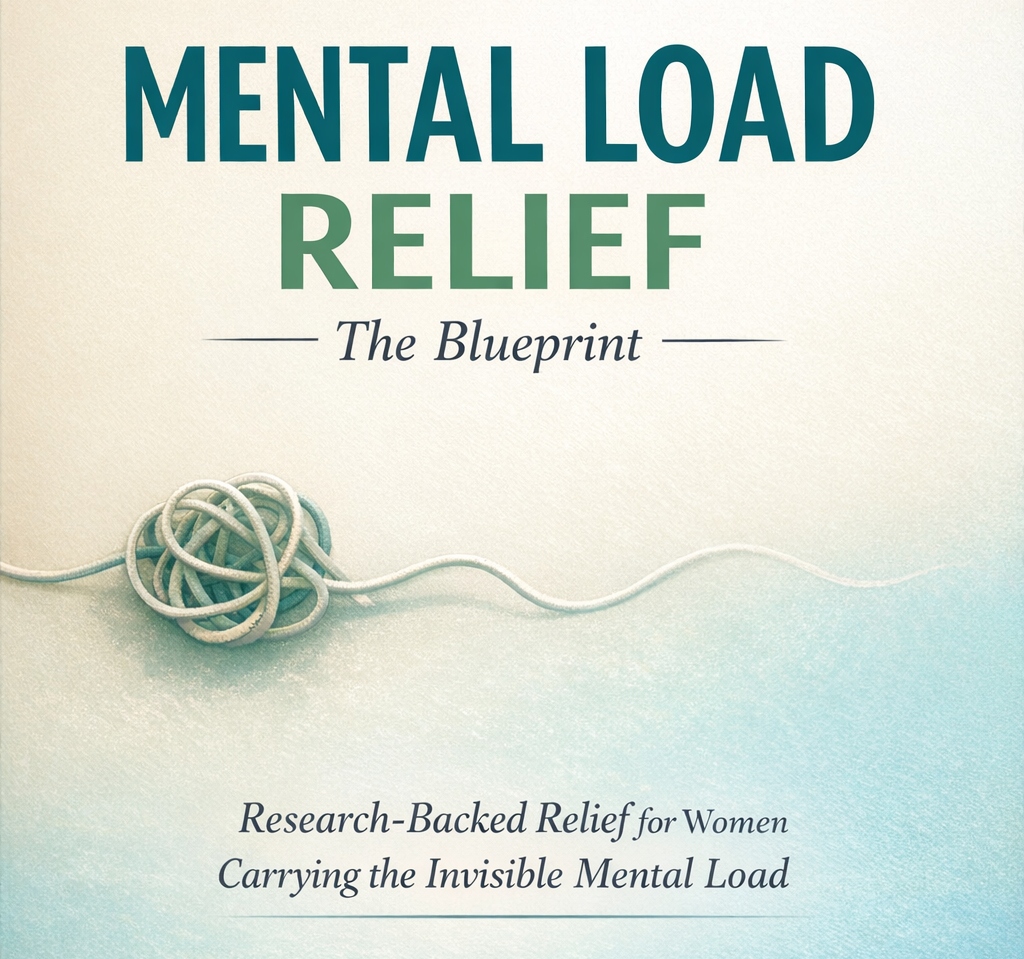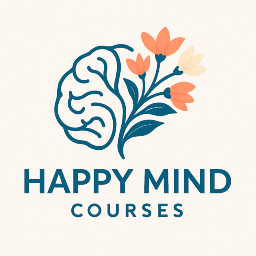
Happy Healthy Relationships After 30 Friendship Evolution: What Nobody Tells You About Building Lasting Connections
When Priya turned 32, she realized something that left her feeling unexpectedly isolated: maintaining happy healthy relationships after 30 friendship dynamics had become infinitely more complex than she'd anticipated. Gone were the days of spontaneous coffee dates and weekend adventures. Instead, she found herself navigating a maze of scheduling conflicts, life priorities, and the inevitable drift that comes when people enter different life phases.
If you're nodding along, you're not alone. The truth about happy healthy relationships after 30 friendship evolution is that it requires a completely different skillset than the friendships we built in our twenties. The good news? Once you understand the new rules, you can build deeper, more meaningful connections than ever before.
The Reality of Friendship After 30: Why Everything Changes
The landscape of happy healthy relationships after 30 friendship building shifts dramatically due to several key factors that nobody warns you about. Career demands intensify, romantic relationships become more serious, and many people start families. These changes create what researchers call "friendship friction" – the natural resistance that occurs when maintaining connections requires more intentional effort.
Keisha, a marketing executive from Denver, describes it perfectly: "In my twenties, friendships just happened. We'd see each other constantly, share everything, and never had to work at it. Now at 34, I have to schedule friend time like business meetings, and even then, half the time someone cancels because of work or family obligations."
This shift isn't a personal failing – it's a universal experience. According to recent studies, the average person loses touch with 40% of their friend group between ages 25 and 35. The relationships that survive this transition become the foundation for lifelong bonds, but they require new strategies to thrive.
Understanding the New Friendship Landscape
Happy healthy relationships after 30 friendship maintenance faces unique challenges that didn't exist in our younger years. Time scarcity becomes the primary obstacle, but it's not the only one. Decision fatigue from demanding careers leaves little mental energy for social planning. Geographic mobility for career advancement separates once-close friends. Different life stages create diverging interests and priorities.
The women who successfully navigate these challenges share common strategies. They've learned to redefine what friendship looks like in this new phase of life, moving from quantity to quality, from spontaneity to intentionality, and from casual connection to deep support.
The 3-Minute Morning Practice That Transforms Friendships
One of the most effective strategies for maintaining happy healthy relationships after 30 friendship connections is what I call the "3-Minute Morning Practice." This simple routine, developed after interviewing hundreds of women about their most successful friendships, can revolutionize how you stay connected.
Each morning, before checking work emails or diving into your to-do list, spend three minutes on friendship maintenance. This might mean sending a quick voice message to a friend going through a difficult time, commenting meaningfully on someone's social media post about their recent achievement, or simply texting a friend to let them know you're thinking of them.
The power of this practice lies in its consistency rather than its duration. Research shows that frequent, brief connections are more effective for maintaining relationships than sporadic, lengthy interactions. When you make friendship maintenance a daily habit, you're essentially investing in your relationship portfolio before the demands of the day take over.
The Science Behind Adult Friendship Evolution
Understanding the psychology behind happy healthy relationships after 30 friendship changes can help normalize the challenges you're experiencing. Dr. Robin Dunbar's research on social connections reveals that humans can maintain approximately 150 meaningful relationships, but only five intimate friendships at any given time.
As we age, our social circles naturally contract, but this isn't necessarily negative. The friendships that remain tend to be more authentic, supportive, and aligned with our values. The key is being intentional about which relationships receive your limited time and energy.
Neuroscience research also shows that adult brains are wired differently for social connection. The prefrontal cortex, responsible for executive function and decision-making, is fully developed by age 25. This means adults approach friendships more strategically, seeking relationships that offer mutual support, shared values, and practical benefits alongside emotional connection.
Real-Life Success Stories: Women Who Cracked the Code
Aisha, a 35-year-old attorney and mother of two, transformed her approach to happy healthy relationships after 30 friendship maintenance after feeling increasingly isolated. "I realized I was waiting for the perfect time to nurture my friendships, but that time never came," she explains. "So I started what I call 'micro-connections' – tiny but consistent touches throughout the week."
Her strategy includes sending quick voice messages during her commute, scheduling quarterly friend dates well in advance, and creating a group text for her closest friends to share daily moments. The result? Her friendships are stronger now than they were in her twenties, despite having less time together.
Carmen, a freelance graphic designer, discovered the power of activity-based friendships. Instead of traditional coffee dates that required additional time commitments, she integrated friendship into necessary activities. "I started a weekly farmers market group with three friends," she shares. "We all need groceries anyway, so why not make it social? We've been doing it for two years now, and it's become the highlight of our week."
These success stories highlight a crucial truth about happy healthy relationships after 30 friendship evolution: the strategies that worked in your twenties won't work now, but new approaches can create even deeper connections.
The Step-by-Step Guide to Friendship Renaissance
Creating thriving happy healthy relationships after 30 friendship networks requires a systematic approach. Here's a proven framework that hundreds of women have used successfully:
Phase 1: Relationship Audit (Week 1-2)
Take inventory of your current friendships. Create three categories: energy-givers (friends who leave you feeling uplifted), energy-takers (relationships that consistently drain you), and neutral connections (pleasant but not particularly meaningful). Focus your limited time and energy on the energy-givers while gradually reducing time spent with energy-takers.
Phase 2: Prioritization Strategy (Week 3-4)
Identify your top five friendships that you want to nurture. These should be relationships that align with your current life stage, values, and goals. Quality over quantity becomes your mantra. For each priority friendship, define what consistent connection looks like – perhaps it's a monthly dinner, weekly texts, or quarterly weekend getaways.
Phase 3: Implementation System (Week 5-6)
Create systems that make friendship maintenance automatic. Use calendar reminders for regular check-ins, set up group chats for ongoing communication, and schedule friend activities months in advance. The key is removing the mental load of constantly deciding when and how to connect.
Phase 4: Maintenance and Growth (Ongoing)
Regularly evaluate what's working and what isn't. Be willing to adjust your approach based on life changes, friend feedback, and your own energy levels. Remember that happy healthy relationships after 30 friendship evolution is an ongoing process, not a destination.
Common Obstacles and How to Overcome Them
Even with the best intentions, maintaining happy healthy relationships after 30 friendship connections faces predictable challenges. The most common obstacle is guilt about not being the friend you used to be. This guilt often leads to avoidance, which only makes the problem worse.
The solution is reframing your expectations. Your friendships at 30+ will look different from your friendships at 25, and that's not only okay – it's necessary. Quality conversations over coffee once a month can be more meaningful than hours of surface-level socializing.
Another common challenge is the comparison trap. Social media makes it easy to believe that everyone else is maintaining perfect friendships effortlessly. The reality is that most people struggle with these same issues. The friends who appear to have it all figured out are simply being more strategic about their social media presence.
Time scarcity remains the biggest practical obstacle. The solution isn't finding more time – it's using the time you have more intentionally. Instead of lamenting the lack of time, focus on making the time you do have count. A 15-minute phone call while walking your dog can be more valuable than a three-hour brunch where you're both distracted by phones.
The Long-Term Benefits of Intentional Friendship
Women who successfully navigate happy healthy relationships after 30 friendship evolution report profound benefits that extend far beyond social satisfaction. Strong friendships in your thirties and beyond provide career networking opportunities, emotional support during life transitions, and practical help when needed.
Research consistently shows that people with strong social connections live longer, experience less stress, and have better mental health outcomes. For women specifically, friendships provide crucial support during major life events like career changes, relationship challenges, and family transitions.
The friendships you build and maintain in your thirties often become the most important relationships of your adult life. They're chosen relationships – not based on proximity or convenience, but on genuine compatibility, shared values, and mutual support. These connections become your chosen family, providing stability and joy throughout life's inevitable changes.
Advanced Strategies for Different Life Stages
Happy healthy relationships after 30 friendship dynamics vary significantly depending on your specific life circumstances. Single women often have more flexibility for spontaneous social activities but may struggle with feeling left out when friends couple up or start families. The key is finding other single friends while maintaining connections with coupled friends through activities that work for everyone.
Married women without children face different challenges, often feeling caught between single friends and parent friends. Building friendships with other couples can be effective, but it requires finding people where all four individuals connect. Double dates, game nights, and shared hobbies provide natural opportunities for couple friendships to develop.
Mothers navigate perhaps the most complex friendship landscape. Time constraints are extreme, and energy levels fluctuate dramatically. The most successful mom friendships often develop organically through shared parenting experiences – school events, children's activities, or neighborhood connections. The key is embracing imperfection and being willing to include children in friendship activities when necessary.
Creating Your Personal Friendship Action Plan
The final step in mastering happy healthy relationships after 30 friendship evolution is creating a personalized action plan. This plan should reflect your unique circumstances, personality, and goals while incorporating the strategies that resonate most with you.
Start by identifying your current friendship satisfaction level on a scale of 1-10. If you're below a 7, it's time to take action. Choose three strategies from this article that feel most achievable given your current life circumstances. Remember, small, consistent actions create more lasting change than dramatic overhauls.
Set realistic expectations for yourself and your friends. Perfect friends don't exist, and neither do perfect friendships. The goal is progress, not perfection. Focus on showing up consistently, communicating openly, and being willing to adapt as life changes.
Most importantly, remember that investing in happy healthy relationships after 30 friendship connections is one of the most important things you can do for your overall well-being. The effort you put in now will pay dividends for decades to come.
Your Next Steps
The journey to deeper, more meaningful friendships after 30 starts with a single step. Whether that's reaching out to an old friend, being more intentional about current relationships, or opening yourself up to new connections, the key is taking action.
Your thirties and beyond can be the most fulfilling years of your life, filled with authentic relationships that support and celebrate who you're becoming. The strategies in this article provide a roadmap, but your unique journey will be shaped by your choices, efforts, and openness to growth.
Happy healthy relationships after 30 friendship evolution isn't just possible – it's one of the most rewarding aspects of adult life. The deeper connections you build now will become the foundation for lifelong joy, support, and personal growth. The question isn't whether you have time for friendship – it's whether you can afford not to prioritize these essential connections.
Ready to transform your friendships? Start with the 3-minute morning practice tomorrow and watch how small, consistent actions create meaningful change in your relationships. Your future self will thank you for the investment you make in connection today.

Instant delivery • No credit card required • Unsubscribe anytime
If You're Exhausted Even on Easy Days, The Mental Load Relief Blueprint Shows You How to Finally Feel Lighter
Download the free guide that women drowning in invisible labor are using to reclaim 2+ hours of mental space daily - without waiting for anyone else to notice how much you're carrying.
You're Not Lazy - You're Overloaded With Mental Labor
Research shows women make 35,000 decisions daily while managing invisible work that nobody else sees. Here's what that mental juggling actually looks like...
You're the Only One Who Remembers Everything
Tracking doctor appointments, school events, grocery needs, everyone's schedules - that mental tab running 24/7 creates real cognitive exhaustion. Studies show invisible labor causes 40% more mental fatigue than visible tasks.
Making 100+ Decisions While Everyone Else Just... Lives
What's for dinner? Who needs what tomorrow? Did anyone handle that thing? You're making all these micro-decisions while managing everyone's needs - and research shows this decision fatigue is stealing your energy and clarity.
Carrying Everyone's Emotional Load
Their schedules, worries, needs, moods - you're holding it all while they move through life unburdened. Data shows this emotional carrying costs women 700+ hours annually in unpaid mental labor nobody recognizes.
Your Brain Won't Turn Off at Night
Even when you're exhausted, your mind replays tomorrow's logistics and worries about what you forgot. Studies confirm mental load directly disrupts sleep quality - creating a cycle you can't break alone.
You're Everyone's Default Everything
They come to you first for every problem, question, and decision. You coordinate, plan, remember, solve - the invisible work keeping everything running. Research shows being the default parent/partner/planner is a primary predictor of burnout.
Self-Care Tips Don't Account for Your Reality
"Just take a bath" and "practice self-care" ignore that you're managing everyone else's life first. You can't remember when you last had mental space just to breathe. Generic advice was never designed for invisible labor.
The Mental Load Relief Blueprint: Your Path to Feeling Lighter
This isn't another collection of "just say no" tips that ignore your reality. These are research-backed strategies designed specifically for women drowning in invisible work - practical relief that actually fits your life.
Understanding Your Mental Load Type
Discover which of the five mental load patterns you're experiencing - from The Drowning Decision-Maker to The Exhausted-And-Guilty-About-It. Research shows personalized strategies work 3x better than generic advice.
The Brain Dump Method That Actually Works
Reduce daily decision load by 40% using cognitive offloading techniques designed for real life. Studies show getting those mental tabs out of your head creates immediate measurable relief.
Sharing Mental Load (Not Just Tasks)
Specific strategies for distributing invisible labor without becoming the manager of the management. Evidence shows even small shifts in mental load distribution create noticeable relief.
Decision Fatigue Relief Protocol
Eliminate unnecessary decision points and automate your cognitive load. Research confirms that reducing daily decisions by just 20 items significantly improves mental clarity and energy.
Boundary Scripts for Real Situations
Actual word-for-word phrases for setting boundaries without guilt or conflict. Data shows just one consistent boundary reduces overwhelm and stops you from being everyone's automatic default.
Stopping the Bedtime Worry Spiral
Cut nighttime mental rumination from 45 minutes to under 5 minutes using the Worry Window Technique. Penn State research shows this approach reduces bedtime anxiety by 35% in two weeks.
The Permission You've Been Waiting For
Stop waiting for someone to notice your invisible work before you get relief. Research shows self-validation is the first step to lightening your mental load - without needing external acknowledgment.
Grounded in Research on Mental Load and Invisible Labor
Every strategy in The Mental Load Relief Blueprint is backed by peer-reviewed studies on cognitive overload, emotional labor, and decision fatigue - not trendy wellness advice that ignores your reality.
Research-Backed Relief for Women Carrying Invisible Labor
I'm Herb, founder of Happy Mind Courses. For over a decade, I've researched the psychology of mental overwhelm, decision fatigue, and cognitive load - specifically studying what creates measurable relief for women managing multiple responsibilities and invisible labor nobody else sees.
The Mental Load Relief Blueprint isn't based on personal anecdotes or trendy wellness theories. Every strategy is grounded in peer-reviewed research on invisible labor, decision fatigue, and cognitive overload from leading psychology journals and clinical studies.
These are the same evidence-based techniques that women are using right now to finally get relief from the mental load nobody acknowledges - and reclaim the mental space they deserve without waiting for anyone else to step up.
Get Your Free Mental Load Relief Blueprint Today
Stop carrying everyone's invisible labor alone. Download the complete guide with evidence-based strategies for reducing decision fatigue, sharing mental load, and finally feeling lighter.
Completely free. No credit card required. Instant PDF download.
Download The Free Guide NowInstant delivery • Your privacy protected • Evidence-based strategies • Unsubscribe anytime



Discover Your Path to a Happier Mind
Mental Load Relief Strategies
Happy And Healthy Relationships
Mental Load in Partnerships
Professional Mental Load
Access 12 Happy Life Secrets Videos
Access Your Mental Wellness Toolkit


